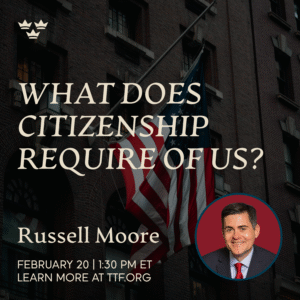In his book The Years of Lyndon Johnson: The Passage of Power, Robert Caro–in the context of the civil rights struggle–writes this:
Johnson refused to compromise. In public, in answer to a press conference question about the possibility of one, he said, “I am in favor of passing it [the bill] in the Senate exactly in its present form.” In private, talking to legislative leaders, he had a more pungent phrase. “There will be no wheels and no deals.” There was, as always, a political calculation behind his stance. “I knew,” he was to tell Doris Goodwin, “that if I didn’t get out in front on this issue, [the liberals] would get me…. I had to produce a civil rights bill that was even stronger than the one they’d have gotten if Kennedy had lived.” And there was, as always, something more than calculation. Assuring Richard Goodwin there would be “no compromises on civil rights; I’m not going to bend an inch,” he added, “In the Senate [as Leader] I did the best I could. But I had to be careful…. But I always vowed that if I ever had the power I’d make sure every Negro had the same chance as every white man. Now I have it. And I’m going to use it.”
The issue of compromise is an important one in politics, and there is much to be said on its behalf. “In the Constitutional Convention, the spirit of compromise reigned in grace and glory,” Catherine Drinker Bowen wrote in Miracle at Philadelphia. “As Washington presided, it sat on his shoulder like the dove. Men rise to speak and one sees them struggle with the bias of birthright, locality, statehood…. One sees them change their minds, fight against pride and when the moment comes, admit their error.”
Some conservatives seem instinctively hostile to comprise in principle, as if it is inherently a sign of weakness, of lack of commitment and resolve, and that it inevitably leads to bad outcomes. As a “constitutional conservative,” I dissent from this attitude.
It’s worth noting that two of the most impressive figures in American history, James Madison and Abraham Lincoln, showed the ability to compromise at key moments. It was Lincoln, as a young man, who said, “The true rule, in determining to embrace, or reject any thing, is not whether it have any evil in it; but whether it has more of evil, than of good. There are few things wholly evil, or wholly good. Almost everything, especially of governmental policy, is an inseparable compound of the two; so that our best judgment of the preponderance between them is continually demanded.” The Lincoln biographer William Lee Miller, building on this point, added, “[M]any reflective moralists, and most serious politicians, including Abraham Lincoln, perceive … that good and evil come mixed and that the moral life most of the time (not quite all of the time) consists of making discriminate judgments, judgments at the margins, discernments of less and more…”
At the same time, there are those who speak as if compromise is itself, in principle, a moral good. But that approach is also flawed and potentially dangerous. Compromise for its own sake can set back the cause of justice. In the wrong hands, in weak hands, it can produce pernicious results. The point is that compromise can’t be judged in the abstract; it can only be assessed in particular circumstances. It takes wisdom and statesmanship to discern when to hold firm (on fundamental principles) and when to give ground (on tactics and secondary issues).
Which brings me back to LBJ. Most modern-day liberals who excoriated conservatives for being “rigid” and opposing “compromise” on matters having to do with the budget and raising the debt ceiling–the pseudo-sophisticated putdown is that they are nihilists–would (rightly) celebrate President Johnson’s refusal to compromise on civil rights. Which may get us somewhat closer to the heart of the matter.
The word compromise is something of a Rorschach test. Those who hold a liberal worldview often consider conservatives who fight hard for their cause to be inflexible and unreasonable, just as those who hold a conservative worldview often consider liberals who fight hard for their cause to be inflexible and unreasonable. What determines whether we judge a politician to be a profile in courage or a profile in intransigence almost always depends on whether we’re sympathetic to the cause they are championing.
As a general matter, then, compromise is neither a moral good nor a moral evil; it’s contextual. And it’s why prudence, not compromise, is rightly considered to be among the highest of all the political virtues.
Peter Wehner is a senior fellow at the Ethics and Public Policy Center.

